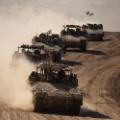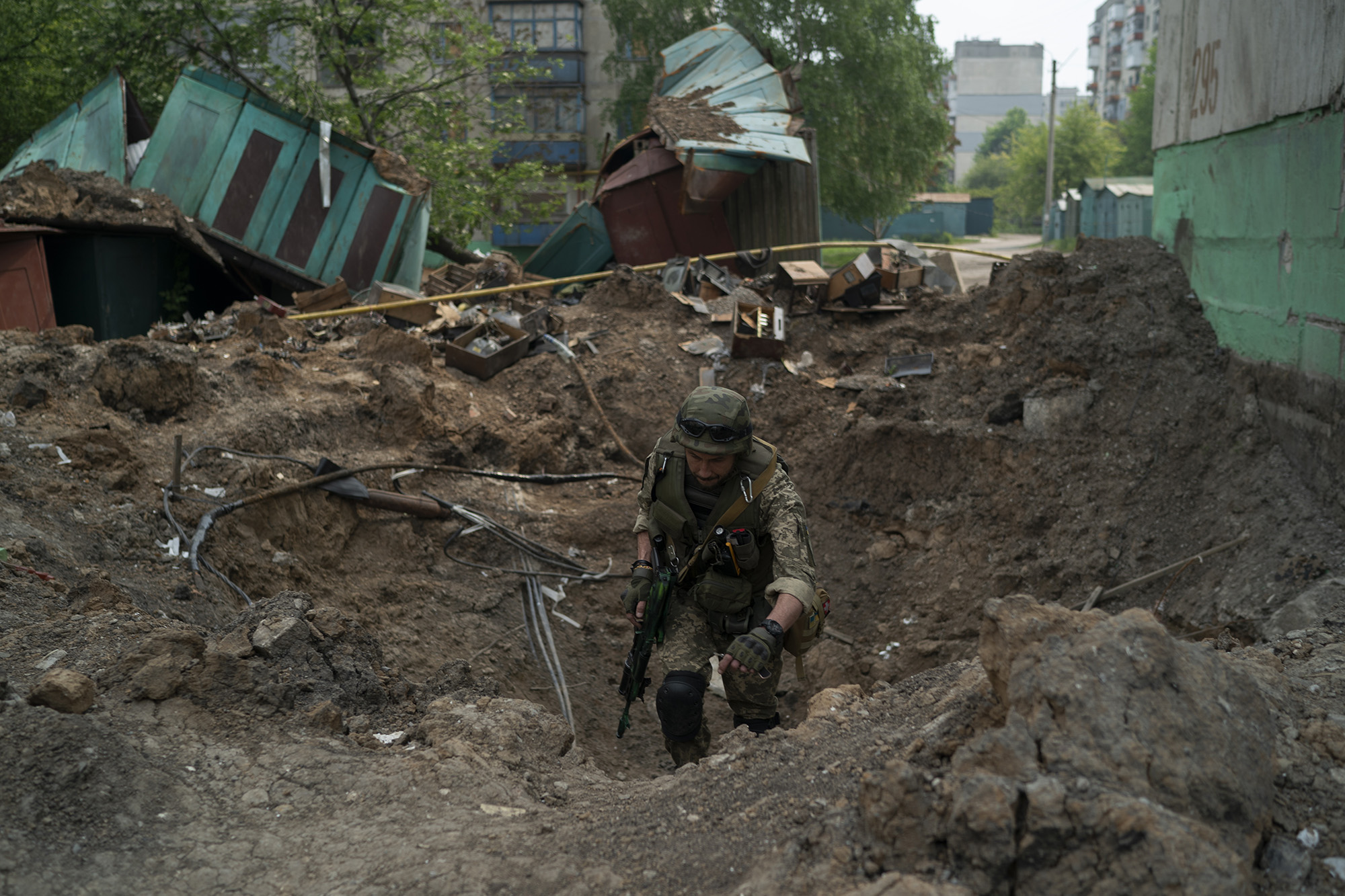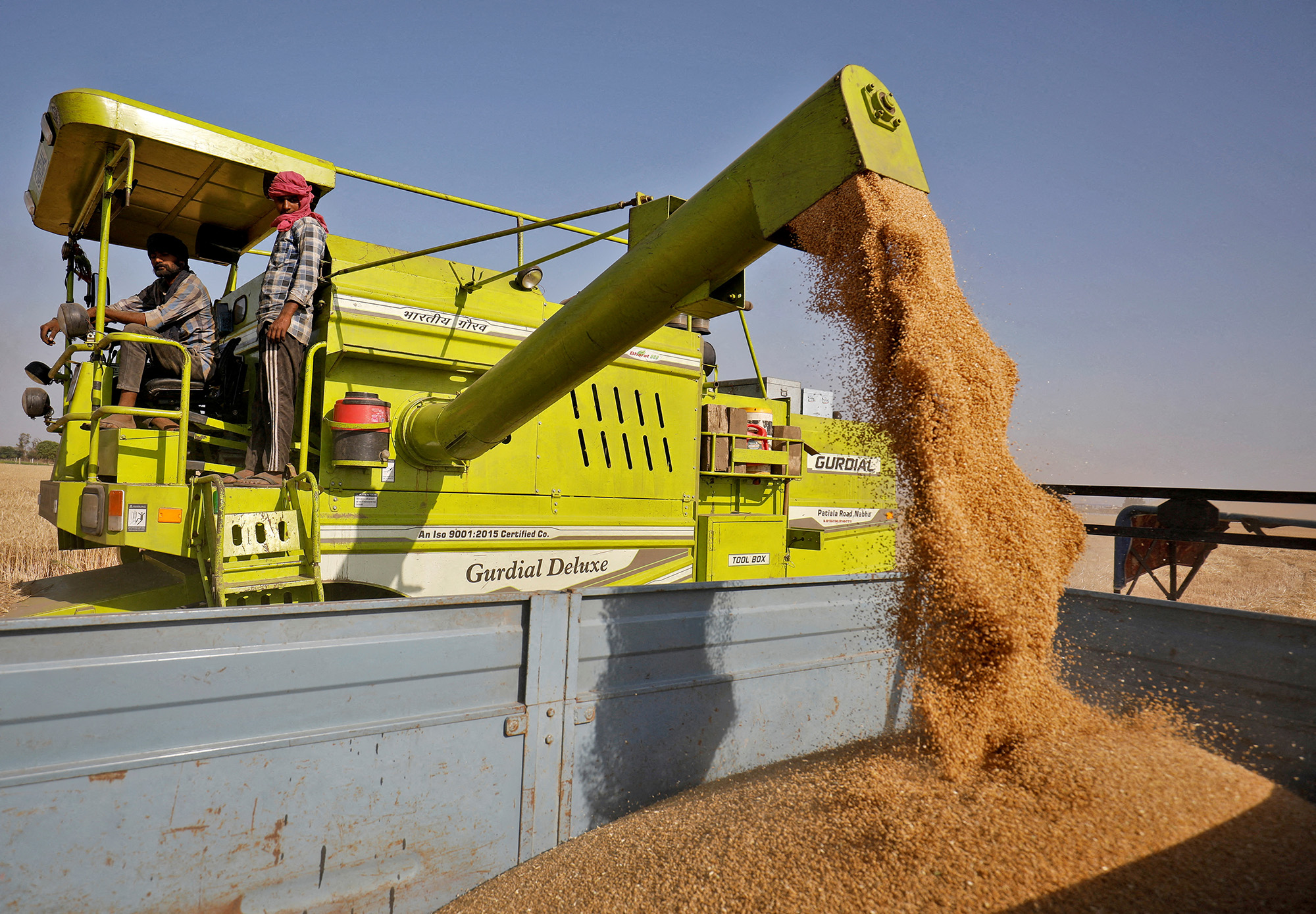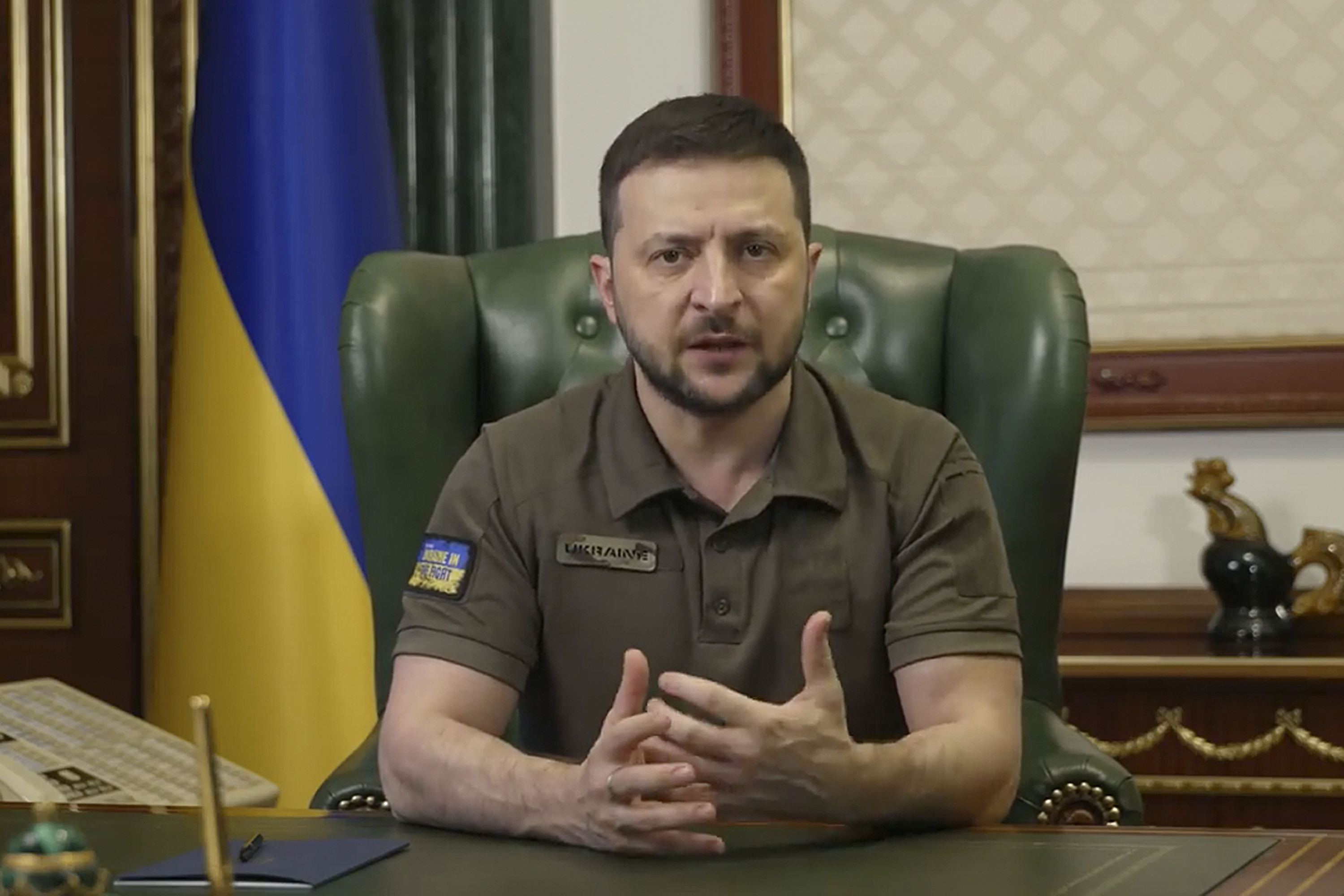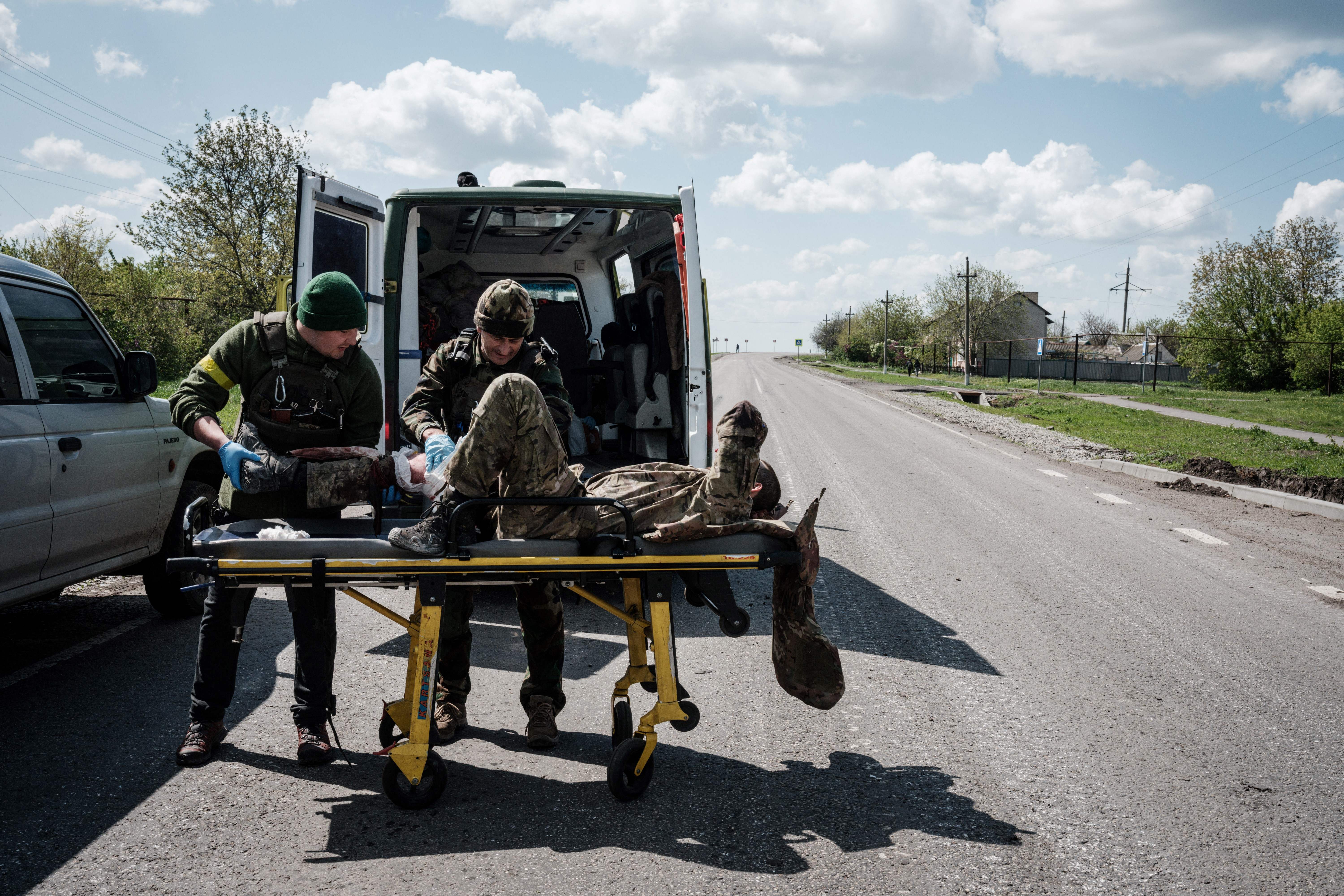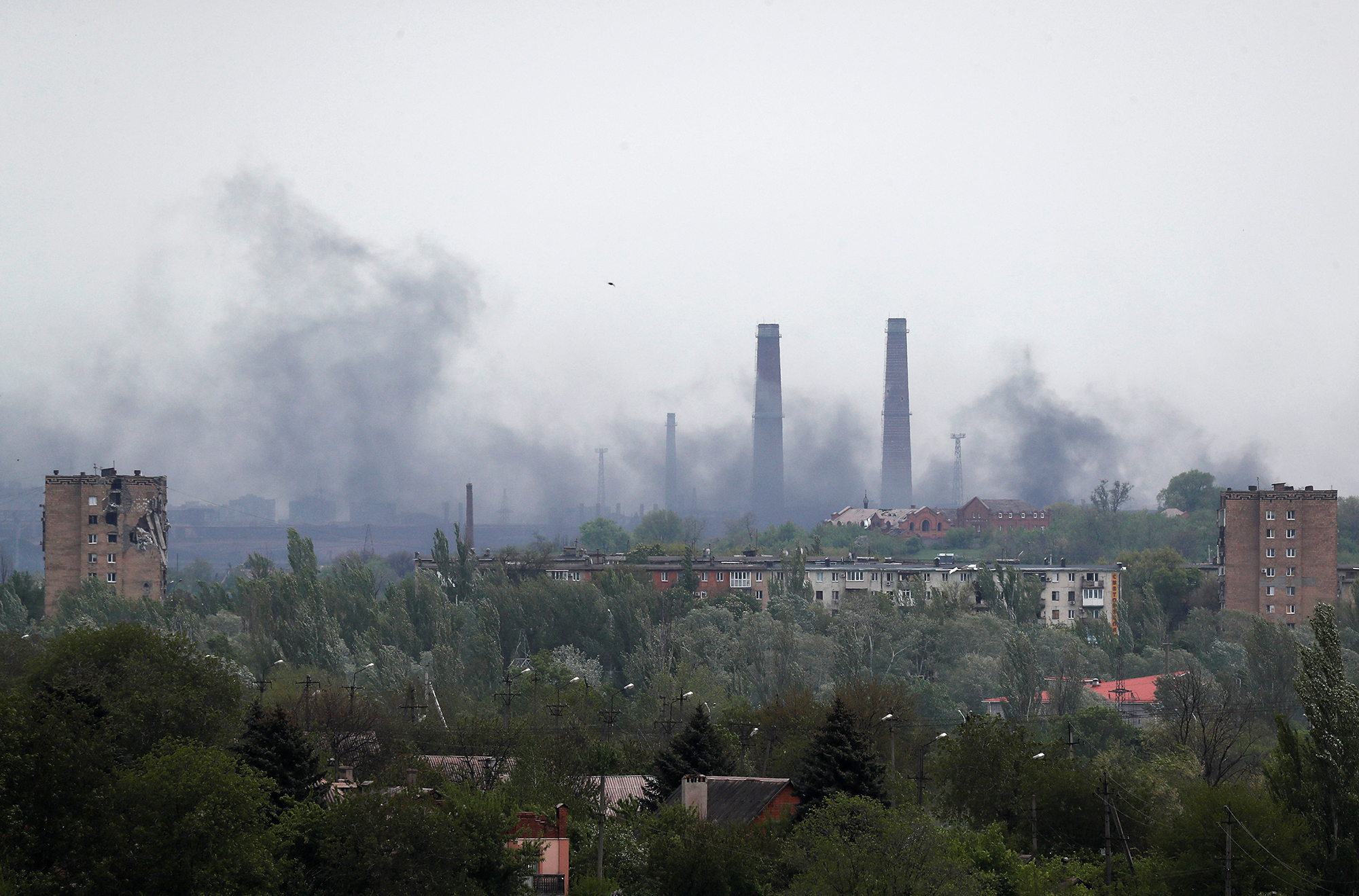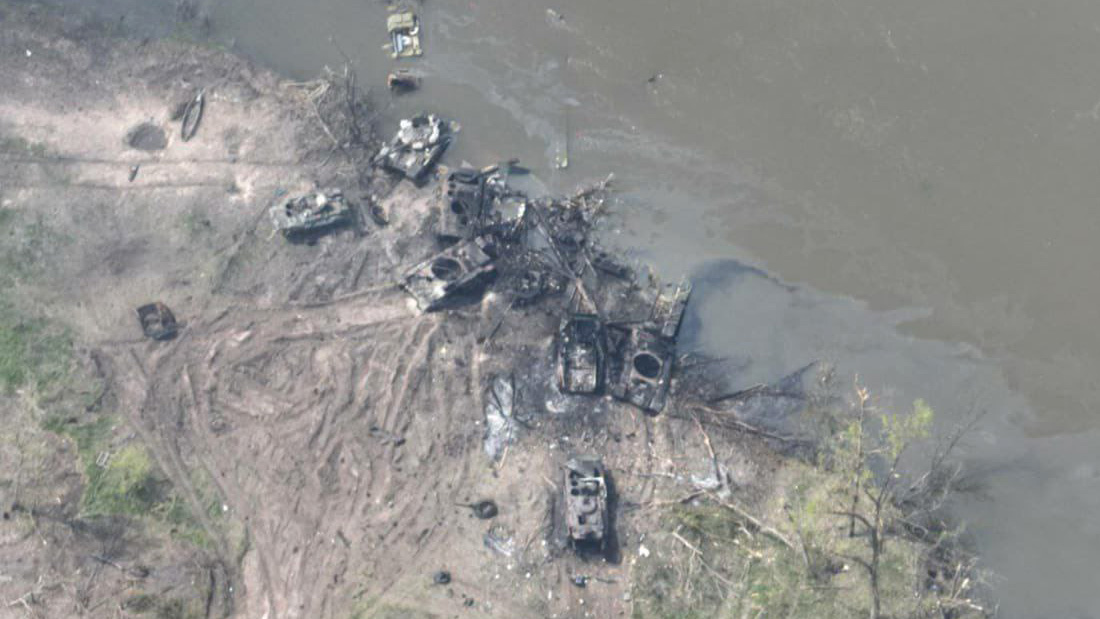
Satellite imagery and first-hand testimony have provided a fuller picture of the multiple and disastrous efforts by Russian forces to cross the Siverskyi Donets River in eastern Ukraine over the past week.
New video and analysis of drone and satellite imagery show that the Russians may have lost as many as 70 armored vehicles and other equipment in attempting to cross the river early this week. Their goal was to try to encircle Ukrainian defenses in the Luhansk region, but it failed spectacularly.
In its account of the battle, Ukraine's 80th separate assault brigade said it had "destroyed the pontoons and thwarted nine crossing attempts."
It claimed that "at least 73 units of equipment were destroyed, including T-72 tanks" and a variety of infantry fighting vehicles.
This tally appears supported by analysis of drone video showing Russian equipment strewn along a track to the north of the river, as well as half-submerged tanks.
It's clear that the Ukrainians had previously worked out where the Russians were likely to try to lay down the pontoons and had observed the approach of Russian units. Reconnaissance of possible crossing points had begun at least two days before the Russian attempt.
The Siverskyi Donets flows quickly and the Russians appear to have needed motorized tugs to try to complete the bridge. The noise was a further clue to Ukrainian units that an attempt to ford the river was underway.
In its account, the 80th brigade says that "despite heavy losses, the enemy still managed to break through ... gaining a foothold on the northern outskirts of one of the settlements." At least 30 Russian vehicles and infantry did make the crossing.
Other Ukrainian officials say that those Russian units that did get across, north of the village of Bilohorivka, were stranded.
"Fierce, heavy fighting lasted about two days," the 80th brigade said on its Facebook page. "The paratroopers destroyed a whole battalion-tactical group (BTG) of invaders!"
Open source analysis suggests this is probably true, with at least 30 infantry fighting vehicles counted among the wreckage at the site of the pontoon, not counting what may have been destroyed among the equipment that did get across.
In its analysis of the episode, the Institute for the Study of War said that "Ukrainian forces likely inflicted heavy casualties on Russian forces attempting to cross the Siverskyi Donets River."
"Russian forces have likely lost the momentum necessary to execute a large-scale crossing of the Siverskyi Donets River," it added.
Mick Ryan, a former Major General in the Australian armed forces who studies the Ukrainian conflict, tweeted: "Russians clearly intended to invest in this axis and throw a lot of combat power down it.
"Consequently, this is probably a larger setback for the Russians than some have speculated," Ryan said in a post published to his verified Twitter account.
"It has likely resulted in not just a BTG but probably an entire Brigade losing a large part of its combat power."
"Importantly, the Russians lost scarce engineer bridging equipment (and probably combat engineers too). These resources are neither cheap nor available in large quantities. And these are in high demand during an offensive."
The Russians' inability to advance from the north across the river has likely slowed down its offensive in Luhansk, which for now is reliant on troops moving from the east and south through frontlines that have moved little in a month.


